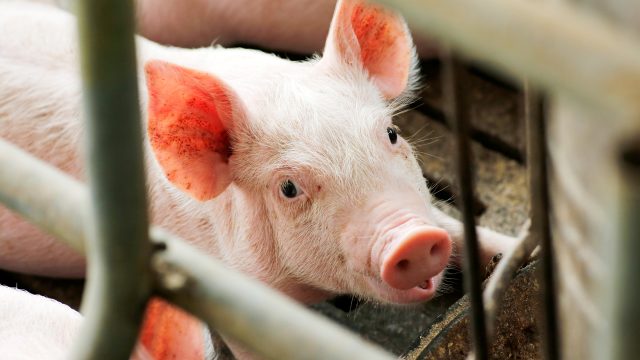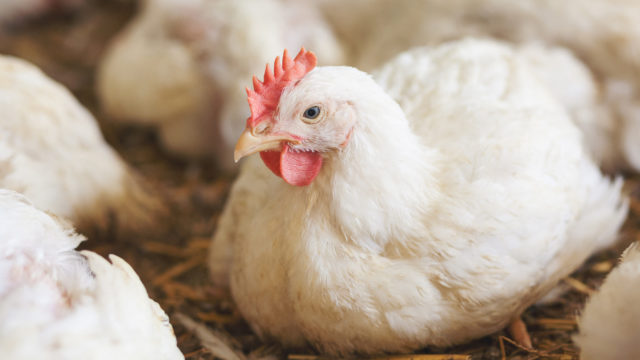
Consumer Warning: Egg Production Regulations Fall Short
As Easter Approaches, the Animal Legal Defense Fund Informs Conscious Consumers about Egg Related Laws
Contact: media@aldf.org
Los Angeles, CA – Roughly twice the normal amount of eggs are purchased in the week before Easter, and with a growing number of conscious consumers, egg producers are trying to entice purchasers with arbitrary acronyms and official-looking seals on their egg cartons. But before shoppers stock up for Easter, the Animal Legal Defense Fund—the leading legal advocacy organization for animals—is taking the guess work out of all those fancy labels.
A growing number of consumers are worried specifically about the welfare of animals used in food production. This has led to a rise in “cage-free” and “free-range” appearing on egg cartons—but the expressed regulations of these misnomers do little to nothing to improve the chickens’ lives.
Animal welfare related labels that regularly appear on egg cartons—“Certified Humane” and “American Humane Certified”—are voluntary fee based certifications, and do not require hens to have access to the outdoors and both permit debeaking without pain killers. “Animal Welfare Approved” is free and sets the highest standard for treatment of egg laying hens.
“Farm Fresh,” “Naturally Raised,” and “Pasture Raised” have no regulatory standards defining these claims. Additionally, regardless of labeling, all eggs are “Antibiotic Free” and “Hormone Free” as it is illegal to give hormones to poultry, and antibiotics decrease egg production.
“Lack of freshness” is the main purchase barrier, according to research conducted by the American Egg Board, so if freshness is the main motivator of purchases, egg producers have the right to be worried.
The truth is code dates—including “EXP,” “Sell By,” and “Best if Used Before”—are not required by the USDA, however if they are used, certain rules apply. Expiration dates can be no more than 30 days from the day the eggs were packed. Not laid—but packaged. Terms such as “Use by” and “Best before” can be no more than 45 days after packaging.
To further clarify the age of the eggs, there is a three digit Julian code, representing the day of the year the eggs were packaged (not laid)—001 being January 1 and 032 being February 1, and so on.
As for when the eggs were actually laid, in accordance with the Egg Products Inspections Act, egg producers have 60 days from lay to package the eggs. If they bear the voluntary USDA grading shield (which is the minority), egg producers have 21 days—three weeks—to put them in a package. So if you purchase a carton of eggs on the “Use by” date with a USDA shield, the eggs could be up to 66 days old. Without a USDA shield, they could be up to 105 days old.
The Animal Legal Defense Fund continues to fight for transparency in egg labeling, after filing a lawsuit against the Food and Drug Administration (FDA), U.S. Department of Agriculture (USDA), and the Federal Trade Commission (FTC) in 2013, urging the federal agencies to regulate the use of animal welfare claims on egg cartons sold in the U.S. The lawsuit is currently before the Ninth Circuit Court of Appeals.
For those seeking a truly humane choice, alternatives to hiding hen-laid eggs abound, including hiding treat-filled, reusable and recyclable plastic eggs.
Focus Area
How We Work
Related
-
U.S. Supreme Court Declines Review of California’s Landmark Proposition 12 Animal Cruelty Law
The Animal Legal Defense Fund helps protect the strongest farmed animal protection law in the countryJuly 2, 2025 News -
Settlement Reached in California Water Use Lawsuit against Foster Poultry Farms
Foster Poultry Farms agrees to improve water conservation and animal welfare at its Livingston, California poultry-processing plantApril 21, 2025 Press Release -
Complaint Urges USDA to Investigate Puppy Mill Carrier for Deaths During Transport
Records obtained by the Animal Legal Defense Fund reveal puppy deaths and injuries in transport.June 11, 2024 Press Release



